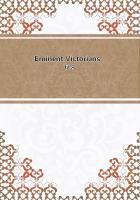"Ah, my dear, that is good," she said. "I was anxious. So now perhaps we shall have a peaceful Christmas. I am glad your Aunt Barbara and Francis are coming, for though your aunt always laughs at your father, she does it kindly, does she not? And as for Francis--my dear, if God had given me two sons, I should have liked the other to be like Francis. And shall we walk a little farther this way, and see poor Petsy's grave?"Petsy's grave proved rather agitating. There were doleful little stories of the last days to be related, and Petsy II. was tiresome, and insisted on defying the world generally with shrill barkings from the top of the small mound, conscious perhaps that his helpless predecessor slept below. Then their walk brought them to the band of trees that separated the links from the house, from which Lady Ashbridge retreated, fearful, as she vaguely phrased it, "of being seen," and by whom there was no need for her to explain.
Then across the field came a group of children scampering home from school. They ceased their shouting and their games as the others came near, and demurely curtsied and took off their caps to Lady Ashbridge.
"Nice, well-behaved children," said she. "A merry Christmas to you all. I hope you are all good children to your mothers, as my son is to me."She pressed his arm, nodded and smiled at the children, and walked on with him. And Michael felt the lump in his throat.
The arrival of Aunt Barbara and Francis that afternoon did something, by the mere addition of numbers to the party, to relieve the tension of the situation. Lord Ashbridge said little but ate largely, and during the intervals of empty plates directed an impartial gaze at the portraits of his ancestors, while wholly ignoring his descendant. But Michael was too wise to put himself into places where he could be pointedly ignored, and the resplendent dinner, with its six footmen and its silver service, was not really more joyless than usual. But his father's majestic displeasure was more apparent when the three men sat alone afterwards, and it was in dead silence that port was pushed round and cigarettes handed. Francis, it is true, made a couple of efforts to enliven things, but his remarks produced no response whatever from his uncle, and he subsided into himself, thinking with regret of what an amusing evening he would have had if he had only stopped in town. But when they rose Michael signed to his cousin to go on, and planted himself firmly in the path to the door. It was evident that his father did not mean to speak to him, but he could not push by him or walk over him.
"There is one thing I want to say to you, father," said he. "Ihave told my mother that our interview this morning was quite amicable. I do not see why she should be distressed by knowing that it was not."His father's face softened a moment.
"Yes, I agree to that," he said.
As far as that went, the compact was observed, and whenever Lady Ashbridge was present her husband made a point of addressing a few remarks to Michael, but there their intercourse ended. Michael found opportunity to explain to Aunt Barbara what had happened, suggesting as a consolatory simile the domestic difficulties of the seals at the Zoological Gardens, and was pleased to find her recognise the aptness of this description. But heaviest of all on the spirits of the whole party sat the anxiety about Lady Ashbridge. There could be no doubt that some cerebral degeneration was occurring, and Lady Barbara's urgent representation to her brother had the effect of making him promise to take her up to London without delay after Christmas, and let a specialist see her.
For the present the pious fraud practised on her that Michael and his father had had "a good talk" together, and were excellent friends, sufficed to render her happy and cheerful. She had long, dim talks, full of repetition, with Michael, whose presence appeared to make her completely content, and when he was out or away from her she would sit eagerly waiting for his return. Petsy, to the great benefit of his health, got somewhat neglected by her;her whole nature and instincts were alight with the mother-love that had burnt so late into flame, with this tragic accompaniment of derangement. She seemed to be groping her way back to the days when Michael was a little boy, and she was a young woman; often she would seat herself at her piano, if Michael was not there to play to her, and in a thin, quavering voice sing the songs of twenty years ago. She would listen to his playing, beating time to his music, and most of all she loved the hour when the day was drawing in, and the first shadow and flame of dusk and firelight; then, with her hand in his, sitting in her room, where they would not be interrupted, she would whisper fresh inquiries about Sylvia, offering to go herself to the girl and tell her how lovable her suitor was. She lived in a dim, subaqueous sort of consciousness, physically quite well, and mentally serene in the knowledge that Michael was in the house, and would presently come and talk to her.
For the others it was dismal enough; this shadow, that was to her a watery sunlight, lay over them all--this, and the further quarrel, unknown to her, between Michael and his father. When they all met, as at meal times, there was the miserable pretence of friendliness and comfortable ease kept up, for fear of distressing Lady Ashbridge. It was dreary work for all concerned, but, luckily, not difficult of accomplishment. A little chatter about the weather, the merest small change of conversation, especially if that conversation was held between Michael and his father, was sufficient to wreathe her in smiles, and she would, according to habit, break in with some wrecking remark, that entailed starting this talk all afresh. But when she left the room a glowering silence would fall; Lord Ashbridge would pick up a book or leave the room with his high-stepping walk and erect head, the picture of insulted dignity.















